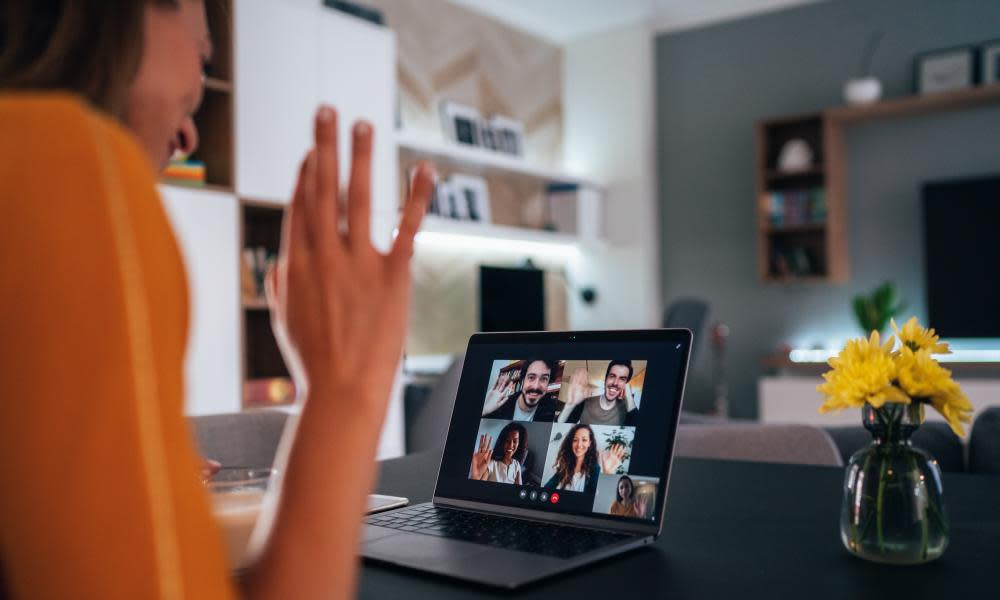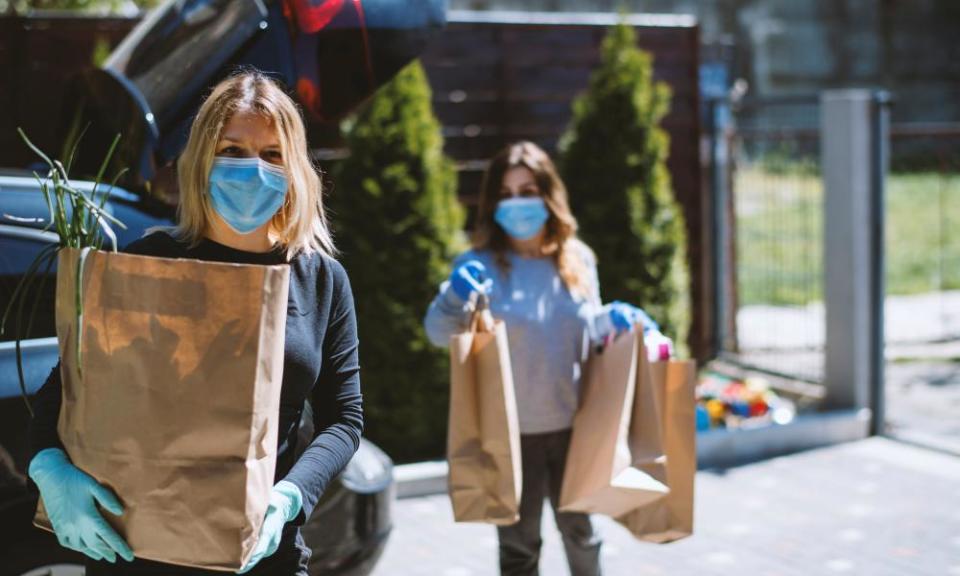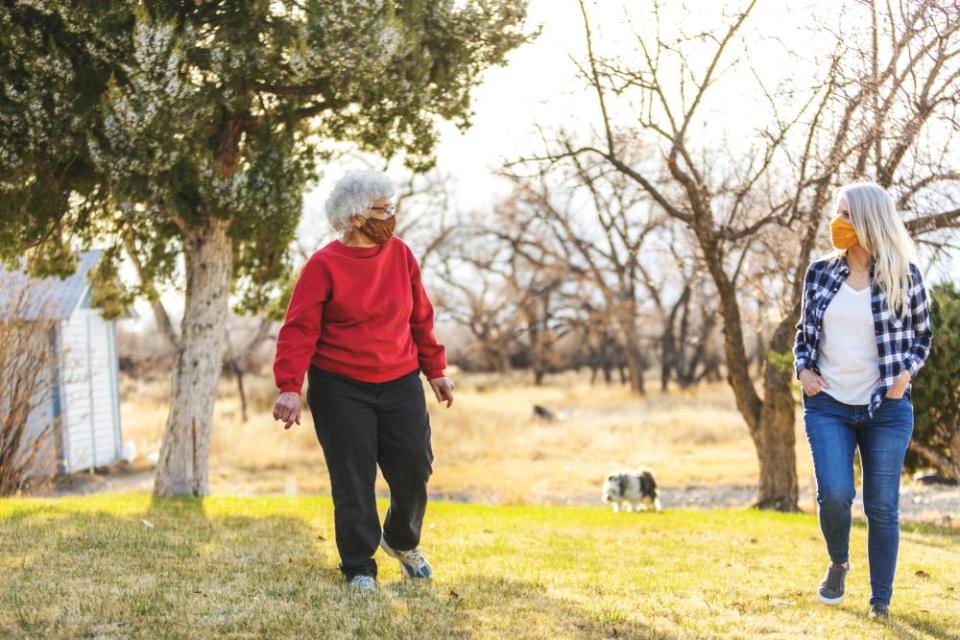Fast friends: eight ways to widen your social circle

If nothing else, 2020 has been a year of intense social contraction. We have variously been told to stay inside, stick to our household bubbles and, on special occasions, to meet up with no more than five people. When mingling is allowed again, there is a good chance we will discover that our social skills have disappeared. We might want to go out and make friends again. But the question is, how?
I have rounded up a collection of doctors and other experts to present you with a definitive guide to broadening your social circle in the current situation.
Maintain your existing connections
Before you attempt to make new friends, it is important to shore up the friendships you already have. You are probably seeing your acquaintances less, but it is much easier to maintain an old friendship than to start a new one. Stephen Buckley, the head of information at the mental health charity Mind, suggests “making time in your daily routine to catch up with loved ones via phone or video call” if possible. “If you’re worried about running out of things to say, you could make plans to watch or read something separately and then discuss it when you speak next,” he says.
Get over your nerves
Dr Radha Modgil is the resident medical expert for Radio 1’s Life Hacks show. She points out that, after such a long time away from other people, you might be filled with uncharacteristic trepidation. This, she says, “may be because you fear being rejected or judged. Working out what you are nervous about in specific terms will help, because then you can tackle it at the source.” She also says it is good to recognise the importance of social interactions. “Often, we still feel shame or stigma if we say we are feeling lonely or need social connection,” she says. “But once we start talking about how this is a basic human need, and how we all struggle with feeling lonely, this year more than any, then this will reduce.”

Be helpful
If you want to meet new people, why not combine it with helping others. Irene S Levine, the author of Best Friends Forever, is a psychologist and the woman behind the blog The Friendship Doctor. She says people need more help than usual at the moment. If you can be the person to provide them with assistance, it could be a solid starting point for future friendships. Levine’s first suggestion is to ask after your neighbours. “Call and see if they need anything,” she says. “Don’t make the mistake of thinking that everyone else already has their social bubble.” Second, she advocates taking on a more formal volunteering role. “Many social and charitable agencies need people to help out during these challenging times. In addition to meeting other volunteers, you’ll realise how fortunate you are to be in a position to help others.”
Find a peer support group
You may feel most comfortable starting with a group that allows you to use your experience to help others. This can range from something structured, such as Alcoholics Anonymous, to something based around a hobby, such as the Men’s Shed Association. Some support groups can still meet in person, providing they adhere to Covid-secure regulations. Another option is to locate an online group. Buckley says: “Mind’s peer-support community, Side by Side, is a place where you can share your experiences and hear from others who may be going through the same thing.”
Hit the apps
Although the majority of socially connecting apps exist for the purposes of dating, there is now a second wave, offering more platonic experiences. One of them is Bumble BFF, which has seen a 57% increase in messages since lockdown began in March. Naomi Walkland, associate director of marketing at Bumble, says users have managed to connect with “gaming communities, socially distanced workout partners, company for dog walks and just people nearby to chat to”.

Go outside
Remember the first stage of lockdown, when anything that wasn’t inside your house seemed scary and dangerous? The best way to overcome this, even now, is to go outside and see that life is still going on to some extent. Levine suggests taking a walk or spending time in a park. “In addition to the health and emotional benefits of the outdoors, you’ll find other masked people to wave at,” she says. “The lockdown has taken away our usual proximity to neighbours and people in shops, so just being among other people, even from afar, can be restorative.”
Rediscover flirting
Before Covid, Jean Smith, a social anthropologist, ran monthly Fearless Flirting tours around London. She has noticed renewed interest in the past few weeks, as people have begun to venture out again in search of connection. She says that, after such a long time in self-isolation, bouts of light and consensual flirtation are a good way to remember that strangers aren’t scary. “We’re just starting to peek our heads out, and we want to connect,” she says.
Smith’s tours operate on a five-stage system, the first of which involves making eye contact with a stranger. But if you are out to make connections, either romantic or platonic, she says: “The key is repeat exposure. The more often that you see people, the easier it is to build up your social circle. First, you go to a regular activity, and then you ask people questions. If you see them once a week, you can start building up commonalities. Maybe you both love foreign films. And some of the theatres or cinemas are open now. So maybe you could say: ‘Oh, well, there’s a movie on at this place. Do you want to go?’”
Join an online book group
A book group has always been a no-fail way to make friends. However, these have also taken a hit in the age of Covid. One alternative is an online book group. Until recently Sam Jordison ran the Guardian’s reading group; he says online book clubs are “one of the few places where people can have arguments on the internet and not break down into fury and rage”. Ladies Lit Squad is a strong choice and Salon Book Club holds frequent ticketed events. If you are after something specific, the Goodreads community is also a great place to start.


